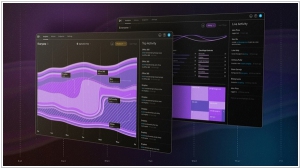Top 10: Secure Web Gateway software
Updated: July 30, 2023
Secure Web Gateway (SWG) software is a vital cybersecurity solution designed to protect organizations from web-based threats and enforce internet usage policies. This specialized software acts as a security gateway between users and the internet, inspecting and filtering web traffic in real-time. SWG software leverages a range of security technologies, such as URL filtering, anti-malware scanning, data loss prevention (DLP), and application control, to safeguard against malicious websites, malware, and data exfiltration attempts. By enforcing policies on web browsing and blocking access to risky or inappropriate content, SWG software helps organizations maintain a secure and productive internet environment. Additionally, SWG solutions often provide granular visibility and reporting capabilities, allowing IT administrators to monitor user activities and security incidents, as well as adjust security policies to align with evolving threats and business requirements. Overall, Secure Web Gateway software is a crucial component of a robust cybersecurity strategy, ensuring a safe and compliant web browsing experience for users while safeguarding sensitive data and mitigating web-based threats.
Some of the most popular Secure Web Gateway solutions are listed below.
See also: Top 10 Cloud Security Software
See also: Top 10 Cloud Security Software
2023. Dope Security nabs $16M led by GV to build out secure web gateways for endpoints

Organizations often invest in secure web gateways, which are network security services that enable the enforcement of IT policies on internet usage by allowing or blocking specific traffic. Despite being a product that has been in use for many years, there is still plenty of room for innovation and advancement. Dope Security, an SWG startup, has raised $16 million to support its efforts in this area. Unlike the popular methods of routing traffic through cloud and data centers or large on-premise network appliances, Dope has developed a secure web gateway that runs on an organization's endpoints, such as computers and other connected devices. According to Dope, this approach makes it easier to use, more secure, less susceptible to failures, significantly faster, and more privacy-friendly for users.

